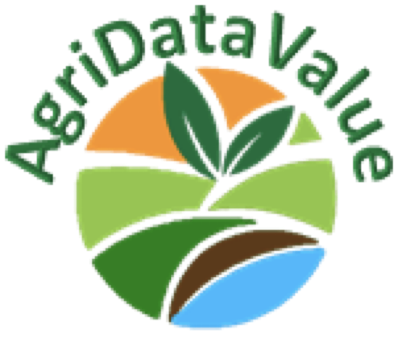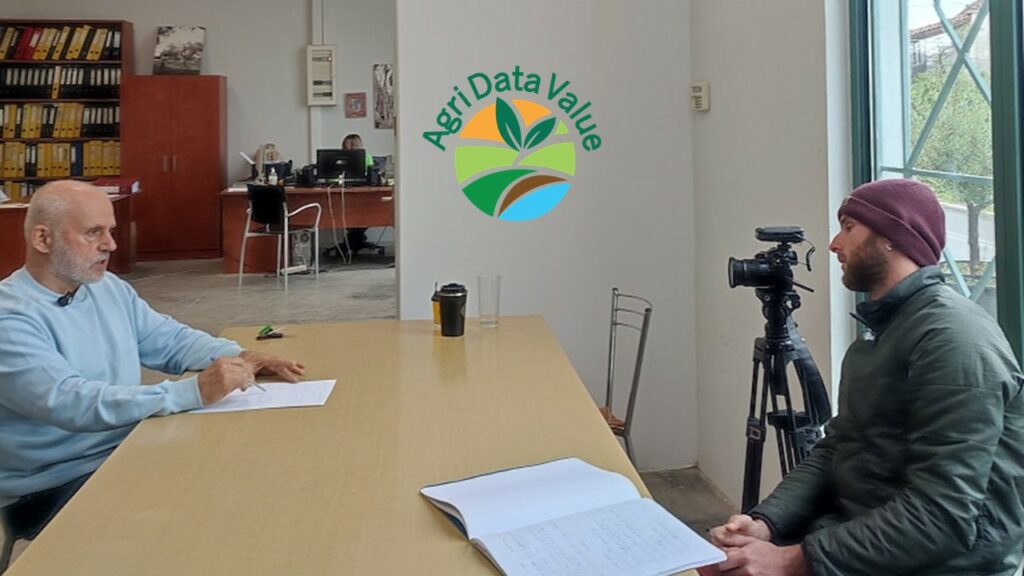On Tuesday, January 9, 2024, the chairman of the Board of Directors of NILEAS Producers’ Group, George Kokkinos, was interviewed by the French researcher and documentarian Mathys Hallet, for the realization of his documentary film, that will be published in 2025, on water management in agriculture in the face of climate change.
He emphasized NILEAS involvement as a pilot in AgriDataValue, by installing environmental sensors measuring air temperature and humidity, rainfall, leaf moisture, wind speed and direction as well as soil sensors in the olive orchards. AgriDataValue with the main aim to establish itself as the Game Changer in smart farming digital transformation and agri-environmental monitoring and strengthen the smart-farming capacities, competitiveness and fair income by introducing an innovative, open source, intelligent and multi-technology, fully distributed Agri-Environment Data Space.
The subject of the interview was the investigation of the ways for the proper management of natural resources with the aim of optimal utilization by the olive oil producers, as well as the pro-environmental practices they use, following modern agroecological approaches. Particular importance was given to the effects of climate change, the challenges facing the traditional model of olive cultivation, and the “tools” available to olive oil producers to adapt to the new conditions.
Topics such as the sowing of leguminous plants in the field, the fragmentation of branches, and the return of the by-products of olive cultivation to the field were discussed, as practices that mitigate the effects of climate change and contribute to the increase of soil organic matter. He referred to the optimal utilization of the available water resources by the producers, and the reason why the use of sensors in the plots and the underground irrigation serve to reduce waste. Additionally, the great gradation and the variability of the climatic conditions of the region, combined with the extreme weather phenomena, create the necessary conditions both for the shift of producers to organic farming, and for the search for techniques and means that will help them cope with these rapid developments.


